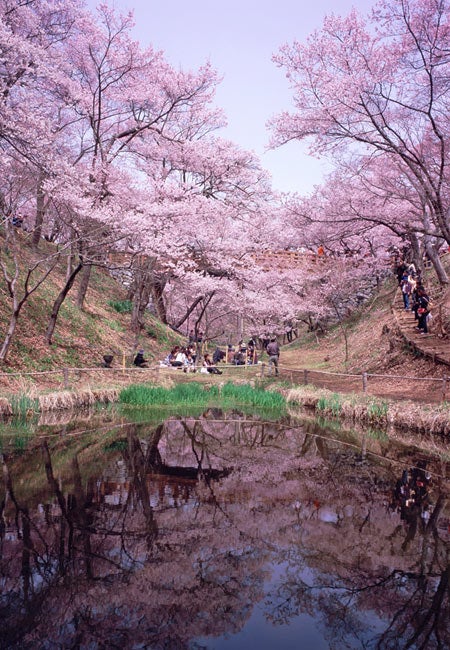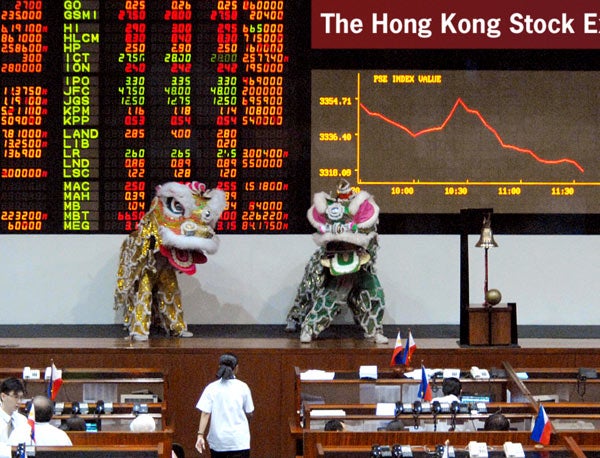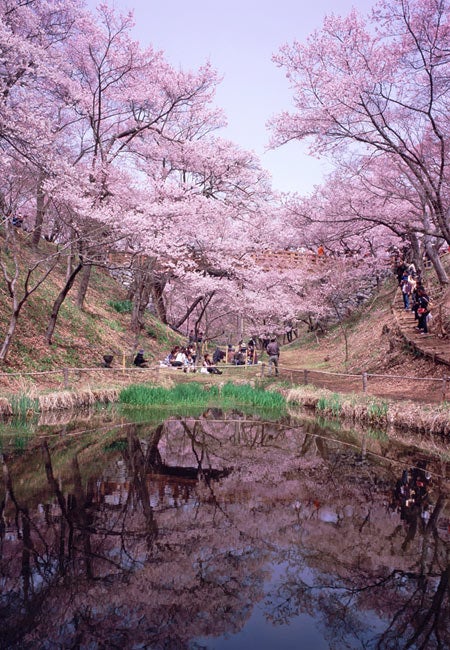TOKYO, HONG KONG, SEOUL—Asian stocks closed one of the worst and most mournfully reflective months on record last week, with the falling American dollar negatively impacting trade volume and causing the markets to drift, like the faded cherry petals of spring blossoms, downward towards the shadowed sea of burgeoning recession, Eastern market analysts warned Monday.

“Our worst monthly drop; rate cuts make investors flee—to commodities,” Nikkei Index vice commissioner Fukako Mishima said, claiming job creation by Mitsubishi, Kawasaki Heavy Industries, and Sony failed to provide confidence in a market already as skittish as the aging husband of a teenage bride, forcing investors to shore up cash reserves with orders of durable goods and agricultural products. “Fading dollar’s gleam, a feeble warning beacon: Seek bellies of pork.”
Hong Kong reported similar woes. Analysts there said the slow chrysanthemum’s bloom of gains from foreign investment had entered a season of cold mists that sent tendrils creeping, creeping among the reeds, stagnant equity, and low-hooting owls from which nothing but fever, longing, and gradually downgraded credit ratings were expected to result.
By the end of trading Monday, the Hong Kong dollar was trading at .13 USD, close to a record low, and currency brokers were exchanging subtle barbs and veiled insults as do former lovers. Volume was only moderate in both cases.
“Our speculation economy was spring wine to those who believed the Middle Kingdom could support an emerging middle class, and that while American and European currency stimulated growth, all would prosper,” said Jin Fusen, an executive investment director for ING at the Hong Kong bourse. “But it seems that we were attempting to ascend to the Monkey King’s Heaven by treading upon a bridge cunningly crafted of obedient birds; and lo! In our haste, one foot falls too heavily; now through a clouded sky, roiled with feathers and harsh cries of alarm, we plummet.”

In addition, durable-goods inventories gathered dust in Asian warehouses while salesmen sought buyers, and buyers sought more favorable credit, and all concerned adopted the aspect of a light-thirsting silk moth wavering between the cold celestial glory of a waxing moon and the sudden treacherous heat of the lantern’s flame.
“At sun’s crimson dawning, storm grumbles, mounting, ripples of the sky and sea reflected in late trading,” said Lee Woo-hyun, a strategist at Kyobo Securities in Seoul who had warned bankers in 2004 that the American real estate bubble was as artificially inflated and volatile as a gaily painted pig’s bladder played with by dust-covered street urchins. “Now the rain comes, from trees striking leaf and blossom both, uncaring. Not to mention gold will soon crest $950 U.S. an ounce as I grow old without grandsons.”
Still, some traders refuse to be affected by the gloom that hovers over the Eastern markets like mulberry smoke over an autumn hearth, maintaining that dramatic market corrections in an era of increasing globalization are only to be expected.
“Panic’s first impulse: Fear freezes traders solid, whispers of rate cuts. Quick fix attempted, the currency devalued…instability!” Morningstar Japan’s Hideyuki Suzuki intoned. “But putting our trust in rate cuts won’t work in the long term, and blind faith in the overprotective vertical structure of the zaibatsu system is simply wrong.
“The plain fact is, we have to break the rigid pattern of 5 percent market drop, 7 point rate cut, 5 percent market rise, which has become almost an Asian stereotype, and start looking elsewhere for inspiration.”
“What Asian businessmen are being forced to realize is that we have to adopt a more global, perhaps even a more Western, way of thinking,” Suzuki added. “Two financial roads are about to diverge, and we must take the one less traveled by. When the books close on fiscal 2008, it may make all the difference.”







